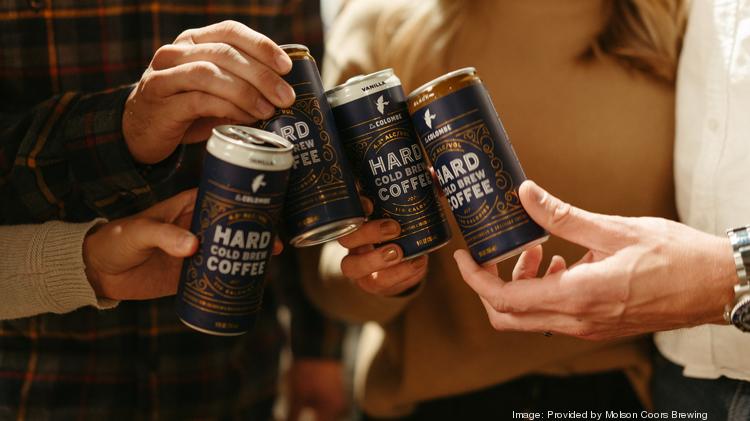Molson Coors Brewing is testing out coffee-infused beer in Denver, Boston and certain areas of Florida. in an attempt to see what the market potential is for alcoholic coffee.
The new beverage is called La Colombe, named after the Philadelphia-based coffee roaster who partnered with Molson to manufacture the product.
The cold brew coffee is mixed with alcoholic malt and comes in two flavors, black and vanilla, with vanilla accounting for 65 percent of the product’s overall sales, reported the Denver Business Journal.
The hard coffee has a lighter alcohol percentage than most beers, containing 4.2 percent by volume. Molson claims their new product, which has been in a pilot running since September, is meant to target millennials and the growing number of coffee drinkers who associate a cup of joe as more than just a morning beverage.
“What consumers are telling us right now is it’s a drink for all occasions. We see them drinking this right before dinner or right before going to a party,” Janice Wisniewski, Molson Coors’ associate marketing manager for innovations, told the business publication. “We wanted to grow beyond beer, and this is one more innovation that gets us beyond beer.”
Although it’s too early to decide how much hard coffee Molson should produce, the company is hoping this new beverage line will provide another revenue stream for the company much like its line of wine spritzers and seltzers have.
Seltzer is an example of how experimenting in the beer market can lead to burgeoning sales. This summer alone, Seltzer grew 200 percent in sales compared to last year and is now a $500 million dollar industry.
Although the hard coffee market so-far doesn’t bare anything close, it’s still an industry with a lot of potential. According to Statista, iced coffee sales increased from $8.5 million in 2015 to $38 million in 2017. With cold brew coffee being such a popular beverage, it could lead to growth in the beer market if the two were combined.
Furthermore, consumers’ love for coffee has fueled popular crafted cocktails like the Espresso Martini, to pop up in countries like London, Berlin, Amsterdam, New York, and Los Angeles.
In addition, a recent survey found 64 percent of American adults age 18 and over claimed they drink a cup daily. This statistic is up 2 percent from 2017 and marks the highest level of coffee consumption since 2012.
With so many Americans consuming this product in the morning regularly, the potential for coffee to become consumer’s go-to alcoholic beverage to wake them up after a hefty dinner looks promising.
Molson states that if the product resonates well with consumers, in its piloted regions it will expand sales to grocery stores and liquor stores across the US in 2020.












Join or login to leave a comment
JOIN LOGIN